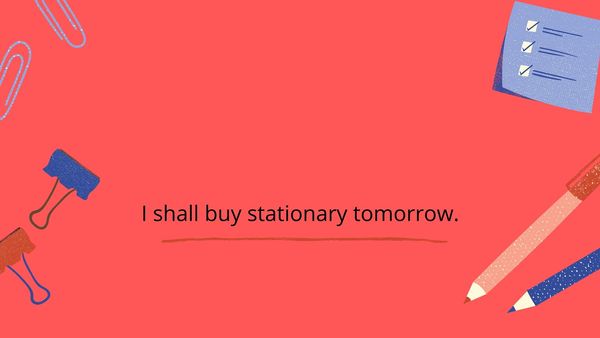
As in the name, the Simple Future Tense expresses a future action or event.
STRUCTURE:
MAKING POSITIVE SENTENCES
Subject | Helping Verb | Main Verb (V1) | Rest of the sentence |
I | shall | go | to school. |
We | shall | go | to school. |
You | will | go | to school. |
He | will | go | to school. |
She | will | go | to school. |
It | will | go | to school. |
Raju | will | go | to school. |
They | will | go | to school. |
Raju and Rani | will | go | to school. |
MAKING NEGATIVE SENTENCES. | |||
Subject | Helping Verb | Main Verb (V1) | Rest of the sentence |
I | shall not | go | to school. |
We | shall not | go | to school. |
You | will not | go | to school. |
He | will not | go | to school. |
She | will not | go | to school. |
It | will not | go | to school. |
Raju | will not | go | to school. |
They | will not | go | to school. |
Raju and Rani | will not | go | to school. |
MAKING POSITIVE INTERROGATIVE SENTENCES. | |||
Helping Verb | Subject | Main Verb (V1) | Rest of the sentence |
Shall | I | go | to school? |
Shall | We | go | to school? |
Will | You | go | to school? |
Will | He | go | to school? |
Will | She | go | to school? |
Will | It | go | to school? |
Will | Raju | go | to school? |
Will | They | go | to school? |
Will | Raju and Rani | go | to school? |
MAKING NEGATIVE INTERROGATIVE SENTENCES. | ||||
Helping Verb | Subject | Adverb | Main Verb (V1) | Rest of the sentence |
Shall | I | not | go | to school? |
Shall | We | not | go | to school? |
Will | You | not | go | to school? |
| Will | He | not | go | to school? |
Will | She | not | go | to school? |
| Will | It | not | go | to school? |
| Will | Raju | not | go | to school? |
Will | They | not | go | to school? |
Will | Raju and Rani | not | go | to school? |
USAGE:
We express actions to take place in the future with the Simple Future Tense:
He will come.
I shall buy some books.
We will save some money to invest in a business.
To express habitual actions in the future:
My father will run a shop.
I shall prepare for my exams.
Raju will save money every month.
To express our opinions about the future:
I expect he will perform better next time.
I think you will finish this work soon.
I suppose Raju will come back after his marriage.
Some actions are planned or fixed by the speaker to fulfil in the future. Such actions are expressed in the Present Continuous Tense:
I am seeing the doctor tomorrow.
Raju is leaving for Hyderabad on Wednesday.
We are celebrating Teachers Day on September 5.
We use be + going to +V1 OR be + going to + V1 structure to tell the immediate future when we know about it. This happens in speaking:
I am going to have a baby.
She is about to open the door.
When the future plan is certain, it is expressed in the Simple Present Tense:
The bus leaves from the station at ten o'clock tomorrow morning.
I report my presentation to my boss at seven in the evening.
To express plans, schedules, instructions, arrangements, newspaper headlines we use the structure be + infinitive:
The Chief Minister is to organise a meeting in March.
You are not to reveal this information to anybody.
Hyderabad is all set to host the international games and sports event soon.
We tell future ideas In subordinate clauses with present tenses:
Tell me when you have done it.
I shall trust him whatever he does.
I shall think of you when I am reading your book.